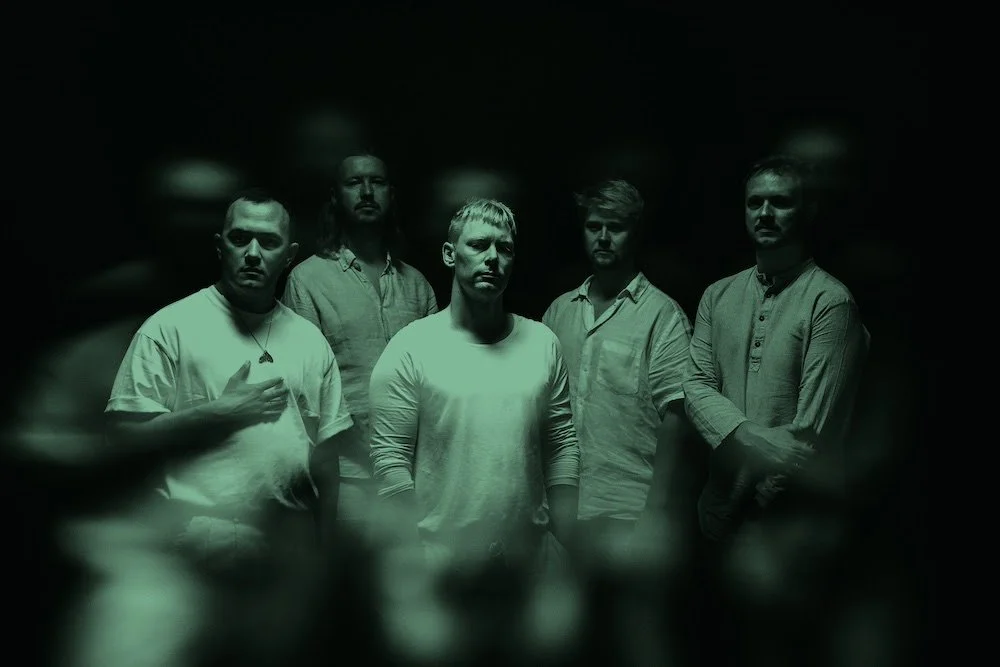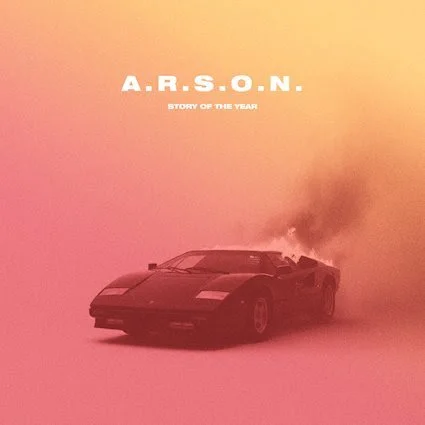Album Review: Chubby and The Gang - 'And Then There Was...'

Chubby And The Gang are working hard to cement themselves as one of the most consistent bands in the UK punk scene.
It’s their third feature length album, coming after Speed Kills in 2020 and The Mutt’s Nuts in the following year. Their new release And Then There Was... shows the same bright colours of the two previous albums, keeping that heavy rock and roll feel with a taste of psychedelia, whilst also building on their former works and introducing a few more sounds, culminating in a wholly more diverse finished product.
‘I see fornication and asphyxiation and choking and fighting for survival and growing and just rotting away’
The album kicks off in classic Chubby fashion, lulling the listener in with a sample from an old timey interview before breaking into mayhem. Its maybe one of their most intense tracks yet, a great way to start the album. Start as you mean to go on.
Three of the four singles follow each with interesting jangly riffs to start before getting into the meat of the songs. One of which To Be Young is one of the most lyrically strong, as Chubby Charles (Charlie Manning) sings of the unpredictability of the future. On the lyrics, he states “When you’re 17 you have no idea about life, you just exist. This song is romanticizing that uncertainty. You make so many mistakes and you have no idea that you're doing them.”
Lead single The Bonnie Banks is maybe their most anthemic and catchy track to date. New drummer Lee Munday shows his adaptability here as he slows his playing down and places more importance on beats that he doesn't crash a symbol on. It gives the song a slightly more laid-back feel, but still brings the energy in Charles’ vocals.
Anticop is another highlight. It’s a classic Chubby And The Gang song, finishing up as quickly, ardently, and instantaneously as it starts, clocking in at just 1 minute and 41 seconds. It’ll no doubt be a favourite live, giving life to mosh pits across Europe on their upcoming tour dates across November and December of this year.
A big surprise on the album is To Fade Away. It wouldn’t feel out of place in a gritty Western, playing as an outlawed cowboy struts through an abandoned town in search of a notorious bounty. We’re introduced to the track by the guitar, strumming a light but distorted riff and following a second or two of silence I was expecting to be thrown into another frenzy of psychedelic punk, but instead we’re given A shiver down my achy spine as Chubby is reintroduced but in a far different context. Throughout the song the drums become more and more powerful, ramping up the tension before it dissipates among radio static.
Company I Don’t Want To Keep feels like one of the most dynamic songs on the LP. It's more of a classic rock song than we’re used to on a Chubby album, so in that context it's hard to guess where it would go next. The guitar parts stood out the most, especially with a really great solo.
Album closer Cocaine Sunday is completely unique in Chubby’s discography, its completely unlike anything the band has put out previously. This world weighs me down Chubby Charles sings in its chorus, alone with a piano reminiscing and ruminating over the crazy times of his past. As the album closer it adds a total new context to the release as a much more mature outing, acting as a sort of comedown from the fury of rock we’ve just been presented with, or more aptly, thrust upon us. This song highlights his vocals most apparently, but that seems to be a trend throughout the album. His performance and the production, really lean into his strong, gruff accent which really works in harmony with the harsh and frantic drumbeats and guitar riffs. It feels as if he has more of a voice here.
These songs feel comfortable playing out of knackered speakers at home, but will find a new, more invigorated life live, something that’s really important for the band given their motto ‘Play good shows. Have good times,’ and there's no doubt that there'll be lots of good times coming for them.
Words by Luca Jarman











